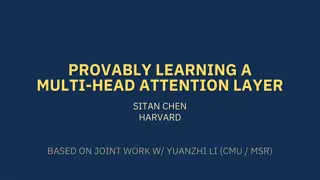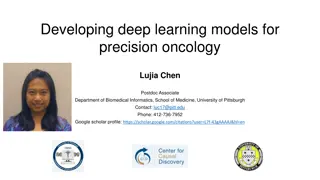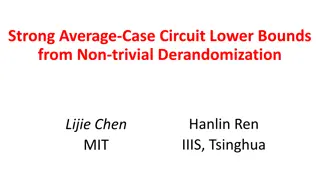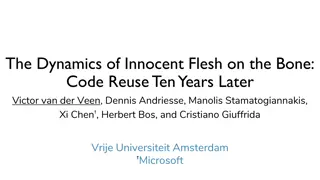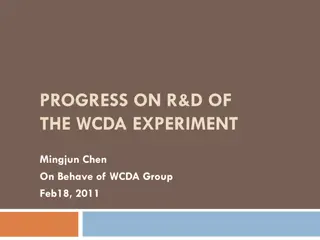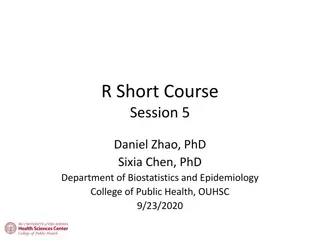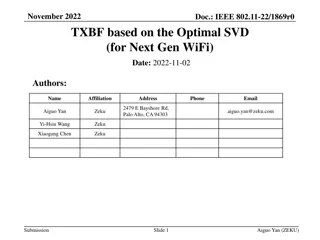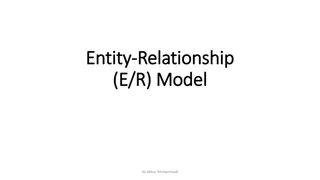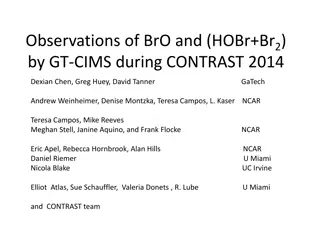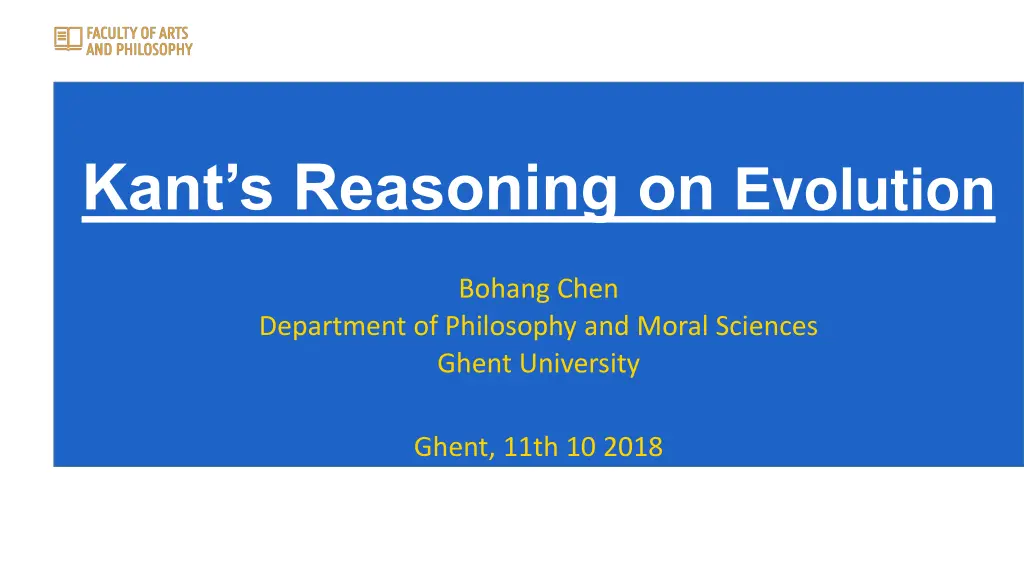
Evolutionary Thoughts in European Philosophy
Explore the history of evolutionary thoughts from prominent philosophers like Schelling, Hegel, and Lamarck before Darwin's time. Delve into the origins of transformism in Europe, considering forerunners and their ideas that paved the way for modern evolutionary synthesis.
Download Presentation

Please find below an Image/Link to download the presentation.
The content on the website is provided AS IS for your information and personal use only. It may not be sold, licensed, or shared on other websites without obtaining consent from the author. If you encounter any issues during the download, it is possible that the publisher has removed the file from their server.
You are allowed to download the files provided on this website for personal or commercial use, subject to the condition that they are used lawfully. All files are the property of their respective owners.
The content on the website is provided AS IS for your information and personal use only. It may not be sold, licensed, or shared on other websites without obtaining consent from the author.
E N D
Presentation Transcript
Kants Reasoning on Evolution Bohang Chen Department of Philosophy and Moral Sciences Ghent University Ghent, 11th 10 2018
THE HISTORY OF EVOLUTIONARY THOUGHTS As we have often heard Charles Darwin: The founding father of evolution (1859) Yet, not perfect: the modern evolutionary synthesis (1920s-1950s) Also, rare forerunners: Jean-Baptiste Lamarck (1809) and others 2
THE HISTORY OF EVOLUTIONARY THOUGHTS Evolutionism (transformism) everywhere in Europe? The hope which so many natural scientists seem to have cherished-to be able to present the origin of all organisms as successive, and indeed as the gradual development of one and the same original organism -Schelling (2004 [1799], p. 48) The course of evolution begins with what is imperfect and formless, such as humidity and aquatic formations, leads on to what emerged from water, such as plants, polyps, mollusca, and fishes, progresses to land animals, and arrives finally at man, as he emerges out of animals. This gradual alteration is said to be an explanation and comprehension of nature. The doctrine is derived from the philosophy of nature, and is still widely prevalent. Although quantitative difference is easy enough to understand however, it explains nothing. -Hegel (1970 [1817], p. 213) 3
THE HISTORY OF EVOLUTIONARY THOUGHTS Evolutionism (transformism) everywhere in Europe? Before Darwin, transformist concepts [existed] in European natural history much work still needs to be done on pre-Darwinian evolutionary theories. -Pietro Corsi (2005, p. 67) 4
THE HISTORY OF EVOLUTIONARY THOUGHTS Evolutionism (transformism) everywhere in Europe? France Britain Germany Lamarck and his circle reconsidered (Burkhardt 1977; Corsi 1988) Robert Chambers (Hodge 1972); Robert Grant (Secord 1991); Richard Owen (Rupke 2009) Schelling, Goethe, Friedrich Tiedemann, Gottfried Reinhold Treviranus, Johann Meckel (Richards 2002; Zammito 2018) Buffon (Wilkie 1956) The Edinburgh School (Rehbock 1983; Jenkins 2015) tienne Geoffroy Saint- Hilaire (Appel 1987) Kant? 5
INTERPRETING FORERUNNERS Yet, what do Darwinians say about forerunners ? France Britain Germany No natural selection No natural selection Idealism and romanticism The false principle use/disuse Species evolution is not real The absurd idea of the vital tendency Evolution has a plan 6
INTERPRETING FORERUNNERS What about Kant as a forerunner? Kant entertained the idea of evolution in a number of writings (Lovejoy 1968). A systematic discussion in Critique of the Power of Judgment (2000 [1790]) A few statements in Opus Postumum (1993 [1936]) 7
THE TRADITIONAL INTERPRETATION Kant rejects species evolution completely, so he is no forerunner of Darwin at all nothing could be further from the truth than the suggestion that Kant has anticipated much of the teaching of evolution (Zammito 1992, p. 215) such general transformations in nature were thought impossible by Kant (Huneman 2006, p. 649) Kant sets up epistemic limits on the claims of a historical science of nature , which further grounds the opposition to species transformism in the early decades of the nineteenth century (Sloan 2006, p. 646) no concrete evidence that Kant allow(s) for the reality of generatio heteronyma (Van den Berg 2015, p. 255). 8
THE TRADITIONAL INTERPRETATION Kant and evolution (Lovejoy 1968) Kant and evolution (Ruse 2006) Lovejoy lists several earlier positive accounts of Kant s stance in relation to evolution, but stresses that these accounts are all very far from correct (1968, p. 75) Ruse defends the ingenuity of Darwinism, and he contends that Kant was not an evolutionist and that his opposition was deep and theoretical (2006, p. 402) 9
THE TRADITIONAL INTERPRETATION Textual evidence Key passages from CPJ The main text: He can have the maternal womb of the earth, which has just emerged from a condition of chaos (just like a great animal), initially bear creatures of less purposive form, which in turn bear others that are formed more suitably for their place of origin and their relationships to one another (Kant 2000 [1790], 5: 419; quoted in Lovejoy 1968, pp. 197-8). The footnote: One can call an hypothesis of this sort a daring adventure of reason as when certain aquatic animals are gradually transformed into amphibians and these, after some generations, into land animals. A priori, in the judgment of mere reason, there is no contradiction in this. Only experience gives no example of it and generatio heteronyma, so far as our experiential knowledge of nature goes, is nowhere to be found (Kant 2000, 5: 419-20; quoted in Lovejoy 1968, p. 198). 10
THE TRADITIONAL INTERPRETATION Textual evidence Kant and evolution (Lovejoy 1968) The main text offers the hypothesis of evolution, but the footnote refutes it through observational evidence. For Kant, evolution is theoretically possible, but empirically implausible. 11
THE TRADITIONAL INTERPRETATION Textual evidence: the key problem Kant and evolution (Ruse 2006) The organized creatures form on earth a whole according to purposes which [can be thought] a priori, as sprung from a single seed (like an incubated egg), with mutual need for one another, preserving its species and the species that are born from it. Also, revolutions of nature which brought forth new species (of which man is one). -Kant in Opus Postumum (1993 [1936] 22: 241) - self-contradictions (Lovejoy 1968, p. 197) -Kant could have changed his mind ! (Ruse 2006, p. 409) -or, Kant s reasoning on evolution has not been properly understood? 12
1. Reconsider Kants text Content 2. Kant s reasoning on evolution (1) 3. Kant s reasoning on evolution (2) 13
RECONSIDER KANTS TEXT Why evolution for Kant? Natural History in his time: Key passages from CPJ (1) It is commendable to go through the great creation of organized natures by means of a comparative anatomy in order to see whether there is not to be found therein something similar to a system This analogy of forms, insofar as in spite of all the differences it seems to have been generated in accordance with a common prototype, strengthens the suspicion of a real kinship among them in their generation from a common proto-mother, through the gradual approach of one animal genus to the other (Kant 2000, 5: 419) 14
RECONSIDER KANTS TEXT After the evolutionary hypothesis and the ambiguous footnote, Kant actually considers (Darwinian) evolution from the theoretical point of view: Key passages from CPJ (2) And yet ultimately he must attribute to this universal mother an organization purposively aimed at all these creatures, for otherwise the possibility of the purposive forma of the products of the animal and vegetable kingdoms cannot be conceived at all. In that case, however, he has merely put off the explanation, and cannot presume to have made the generation of those two kingdoms independent from the condition of final causes. (Kant 2000, 5: 419-420, emphasis added) 15
RECONSIDER KANTS TEXT After the evolutionary hypothesis and the ambiguous footnote, Kant actually considers (Darwinian) evolution from the theoretical point of view: Key passages from CPJ (3) Even the alteration to which certain individuals in organized genera are contingently subjected, where one finds that their altered characteristic is heritable and has been taken up into the generative power, cannot be properly judged as other than an incidental development of a purposive predisposition to the self-preservation of the kind that was originally present in the species, because in the thoroughgoing internal purposiveness of an organized being the generating of its own kind is so closely connected with the condition that it incorporate nothing into its generative power that does not belong to one of the undeveloped original predispositions of such a system of ends. (Kant 2000, 5: 420, emphasis added) 16
RECONSIDER KANTS TEXT Kant s summary in OP The organized creatures form on earth a whole according to purposes which [can be thought] a priori, as sprung from a single seed (like an incubated egg), with mutual need for one another, preserving its species and the species that are born from it. Also, revolutions of nature which brought forth new species (of which man is one). -Kant (1993 [1936] 22: 241) 17
1. Reconsider Kants text Content 2. Kant s reasoning on evolution (1) 3. Kant s reasoning on evolution (2) 18
KANTS REASONING ON EVOLUTION (1): Against the traditional interpretation The main text: He can have the maternal womb of the earth, which has just emerged from a condition of chaos (just like a great animal), initially bear creatures of less purposive form, which in turn bear others that are formed more suitably for their place of origin and their relationships to one another (Kant 2000 [1790], 5: 419; quoted in Lovejoy 1968, pp. 197-8). The footnote: One can call an hypothesis of this sort a daring adventure of reason For it is not absurd, unlike generatio equivoca, by which is meant the generation of an organized being through the mechanism of crude, unorganized matter. A priori, in the judgment of mere reason, there is no contradiction in this. Only experience gives no example of it and generatio heteronyma, so far as our experiential knowledge of nature goes, is nowhere to be found (Kant 2000 [1790], 5: 419-20; quoted in Lovejoy 1968, p. 198). 19
KANTS REASONING ON EVOLUTION (1) Evolution: a daring adventure of reason Where does the first organism of a species come from? God? No, no place for God in empirical sciences. From matter (generatio equivoca)? Quite improbable ( absurd ) From an organism of an earlier species (generatio heteronyma)? We have no better choice ( not absurd ) 20
1. Reconsider Kants text Content 2. Kant s reasoning on evolution (1) 3. Kant s reasoning on evolution (2) 21
KANTS REASONING ON EVOLUTION (2) Kant s view of evolution (actually much more popular in the 19th century) The organized creatures form on earth a whole according to purposes which [can be thought] a priori (1993 [1936] 22: 241) (we need) a theory of organismic form analogous to the theory of atomic structure that is, the universal laws or constraints which define what is possible (Goodwin 1982, p. 45) 22
FINALLY, KANTS VIEW OF EVOLUTION AND DARWINISM Kant would be unsatisfied with a geneaological story of evolution! And yet ultimately he must attribute to this universal mother an organization purposively aimed at all these creatures In that case, however, he has merely put offthe explanation (Kant 2000, 5: 419-420, emphasis added) 23
FINALLY, KANTS VIEW OF EVOLUTION AND DARWINISM Evolution in accordance with a plan? Darwinism? Germany There exists the contrast between Darwin s theory of gradual, irregular evolution and that of a progressive, step-by-step ascent towards a predetermined goal (Bowler 1984, p. 101) Idealism and romanticism Species evolution is not real Evolution has a plan Evolution is contingent, and it does not have any plan no in advance! 24
FINALLY, KANTS VIEW OF EVOLUTION AND DARWINISM Evolution in accordance with a plan? Darwinism? Darwinism? There exists the contrast between Darwin s theory of gradual, irregular evolution and that of a progressive, step-by-step ascent towards a predetermined goal (Bowler 1984, p. 101) The ultimate achievements of rational morphology turn out to be a triumph for Darwinism (Maynard-Smith 1982, p. 49). Will this necessarily contradict Darwinism? I cannot see why it should (p. 50). Evolution is contingent, and it does not have any plan no in advance! 25

